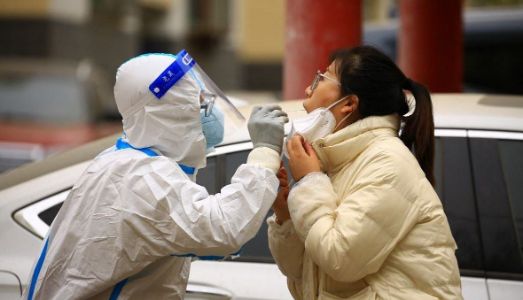
-
Published: 21 December 2022

In light of the sharp rise in covid-19 infections, the World Health Organization has called on China to accelerate the pace of vaccination of the most vulnerable population, asking for more detailed information about the severity of the epidemic and expressing serious concern about the situation.
"Who is very concerned about the development of the situation in China,"who Director-General Tedros Adhanom Ghebreyesus said at his weekly press conference. "In order to fully assess the risks involved in the situation, who needs more detailed information on the severity of the disease, hospitalizations and needs in intensive care units,"he added.
He stressed that the organization will not hesitate to "support China to focus efforts on vaccinating the most vulnerable people".
Since 2020, the Chinese government has been imposing strict health restrictions in the context of its policy known as "zero covid".
However, the majority of these measures were lifted at the beginning of December without prior warning in light of the growing discontent of the population and the significant repercussions on the economy.
Since then, infections have skyrocketed, amid fears of rising deaths among older people who are particularly vulnerable to the virus.
Dr. Michael Ryan, who is responsible for the management of health emergencies at the World Health Organization, stressed the need to intensify the pace of vaccination.
"We really need to focus on vaccination. We cannot fail to notice that China has made significant progress in recent weeks in the distribution of vaccines,"he said.
"Vaccination is the exit strategy from the Omicron wave," the most contagious variant of the virus, he added.
More than 650 million covid infections and more than 6.6 million deaths have been recorded worldwide, according to the World Health Organization, which draws attention to the fact that these figures are below reality.
Tedros again asked China on Wednesday to share information about the origin of the virus, which was first detected in the Chinese city of Wuhan in December 2019, in an effort to deepen understanding of its origin.
"We still hope that China will share the data and conduct studies that we have requested and we will not stop demanding them. As I have said on more than one occasion, all hypotheses about the origin of the pandemic remain on the table,"he said.
Since the beginning of the pandemic, controversy has raged among experts seeking to determine its origin. Studies have concluded that the virus is of animal origin, while other experts support the hypothesis that it escaped from a laboratory in Wuhan.
